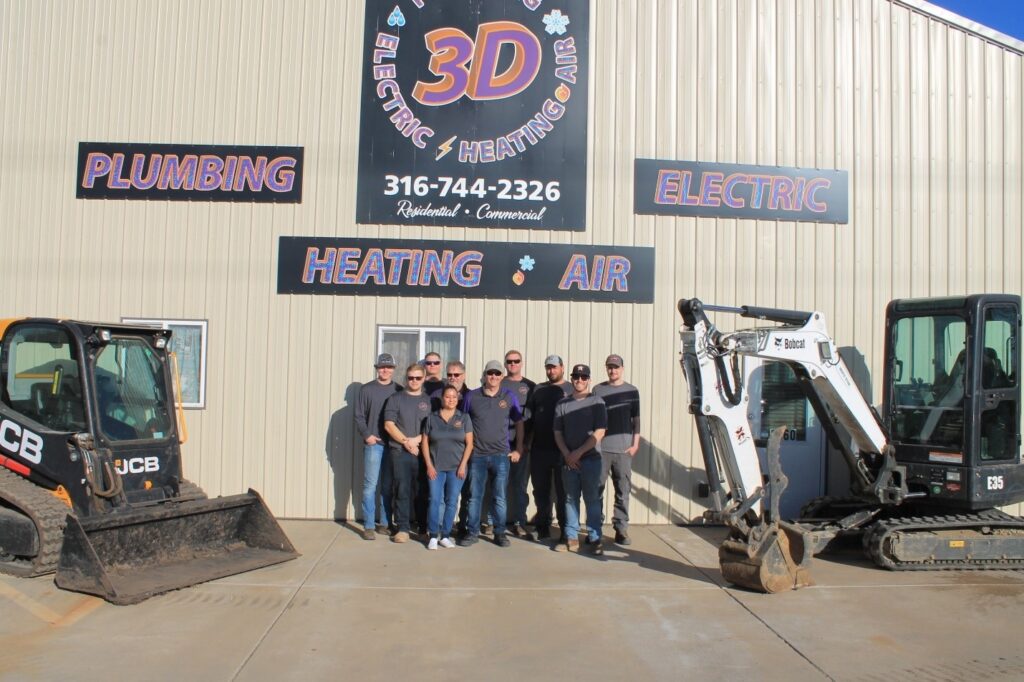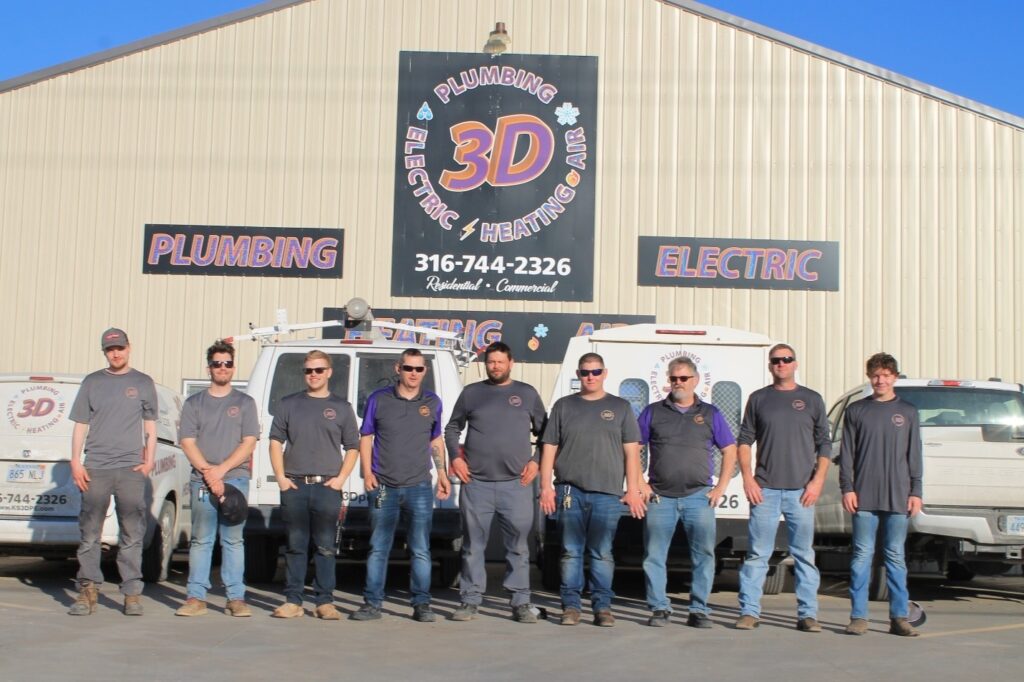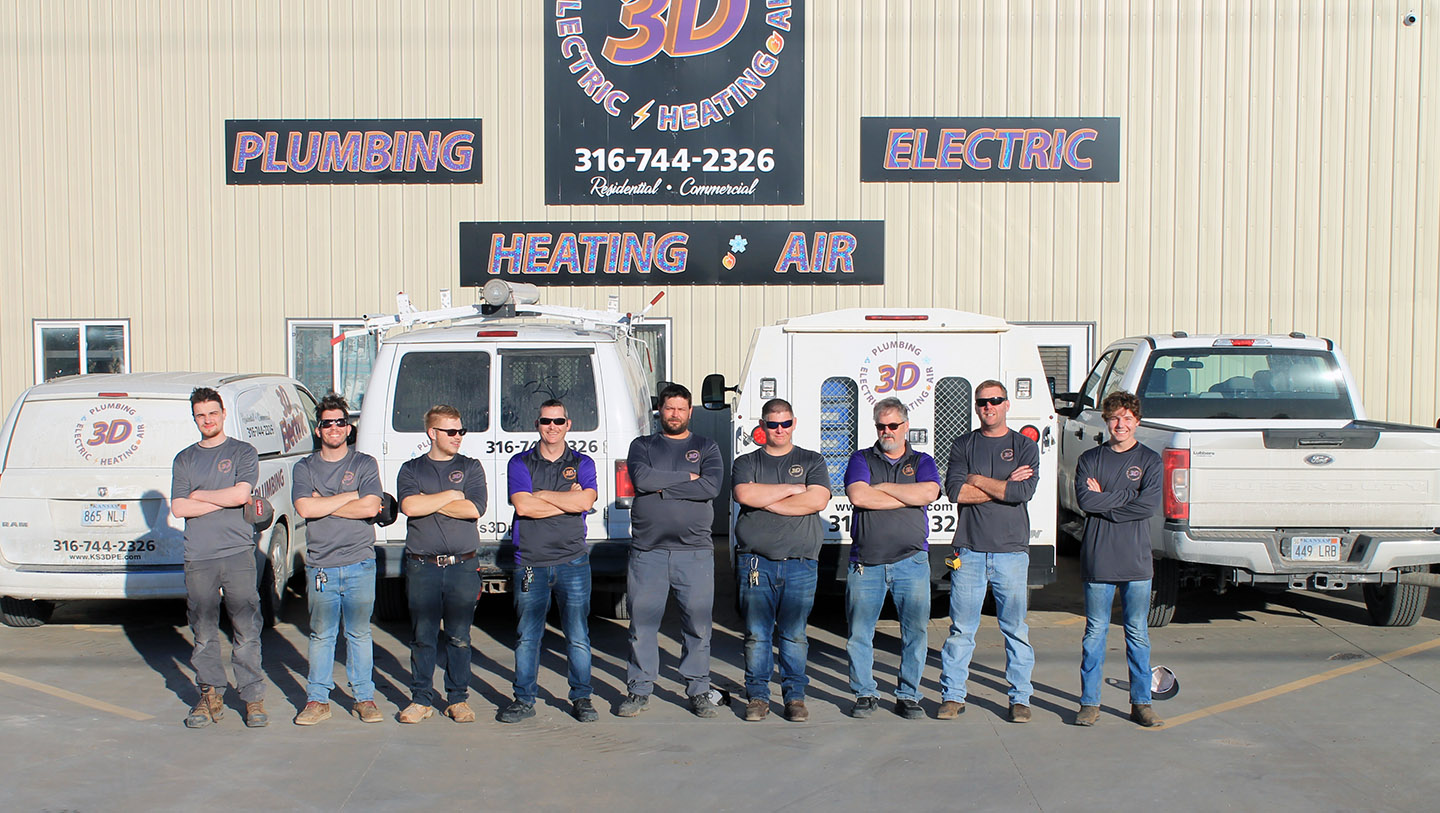Since 2012, 3D Plumbing - Electric - Heating & Air has been a cornerstone of quality service in Park City, KS, and the surrounding areas. We understand that your septic system is a crucial part of your home’s plumbing infrastructure, and proper maintenance is key to ensuring its longevity.
In this blog, we share expert tips on how to extend the life of your septic system. From routine inspections to mindful water usage, our comprehensive guide will help you maintain a healthy and efficient septic system, saving you time, money, and unnecessary stress.

If you're a homeowner with a septic system, you're essentially responsible for your mini wastewater treatment plant. A septic system is an underground structure that treats household wastewater from toilets, sinks, showers, and laundry. It's a vital component of homes not connected to municipal sewer lines.
Why should you care about maintaining your septic system? The answer is twofold: financial savings and environmental protection. A neglected system can fail prematurely, leading to costly repairs, potential health hazards, and contamination of groundwater and nearby waterways.
According to the Environmental Protection Agency (EPA), the average lifespan of a septic system is 15-40 years. However, with proper maintenance, this lifespan can be significantly extended, saving you thousands of dollars in replacement costs while safeguarding the environment.

To effectively maintain your septic system, it's important to understand its key components and how they work together. The main parts of a typical system include:
The septic system functions as a natural biological treatment process. Naturally occurring bacteria in the tank break down the solid waste, reducing its volume. The effluent that flows to the drain field is much cleaner than the raw wastewater that enters the tank. The bacteria in the tank are essential for this process. They thrive in a balanced environment, but too much water or the introduction of harmful substances can disrupt their activity.
The EPA emphasizes the importance of mindful water usage and avoiding flushing items that can kill these beneficial bacteria.

The single most important maintenance task for your septic system is regular pumping. Over time, solids that aren't broken down by bacteria accumulate in the tank as sludge and scum. As these layers thicken, the tank's capacity to hold wastewater decreases. This can lead to backups in your home, slow drains, and, eventually, system failure, which can be a messy and expensive problem.
How often should you pump your septic tank? A general guideline is every 3-5 years, but the exact frequency depends on several factors, including the size of your household, the volume of wastewater generated, and the size of your tank. Larger households and those with smaller tanks will typically require more frequent pumping.
In addition to pumping, it's crucial to have your septic system inspected regularly by a qualified professional. An inspection can identify potential problems early on, such as leaks, root intrusion, or malfunctioning components. The EPA recommends having your system inspected every 1-3 years. During the inspection, the inspector should measure the levels of scum and sludge in the tank to determine if pumping is necessary.
Give the professionals at 3D a call anytime to handle your septic needs – (316)744-2326.

Excessive water use can overload your septic system, causing solids to flow into the drain field and potentially leading to clogs and backups. By conserving water, you reduce the burden on your system and extend its lifespan. Here are some practical tips to reduce water consumption and protect your septic system:
Research suggests that reducing water consumption can extend the system's life by several years, resulting in substantial savings in the long run. The EPA also recommends balancing your water usage throughout the week to avoid overloading the system with large volumes of water at once. This gives the bacteria in the tank time to effectively treat the wastewater.
To break down waste, your septic system depends on a precise balance of microorganisms or bacteria. Flushing or pouring inappropriate items down the drain can disrupt this balance, leading to clogs, backups, and costly repairs. Here are some common culprits to avoid:

Our team of professionals is here to answer any septic-related questions you may have. Give us a call anytime at (316)744-2326.
The drain field, also known as a leach field, is a critical component of your septic system. It acts as a natural filter, slowly releasing the partially treated wastewater (effluent) from the septic tank into the surrounding soil. The soil then filters the effluent further, removing harmful bacteria and pollutants before it reaches the groundwater.
Protecting your drain field is essential for maintaining a healthy septic system. Here's how you can safeguard this crucial component:
Septic tank additives are widely marketed as a way to improve the performance and longevity of your septic system. They claim to do everything from breaking down solids more efficiently to reducing odors and preventing clogs. But do they really?
The answer is not so straightforward. The effectiveness of septic tank additives is a subject of debate, with some experts questioning their benefits and potential drawbacks.
Biological additives contain bacteria and enzymes that are intended to boost the existing bacterial population in the tank, aiding in the breakdown of waste. However, a healthy septic system already contains a diverse population of bacteria, and adding more may not necessarily improve its performance.
The EPA generally does not recommend the use of septic tank additives. They state that a properly maintained system with regular pumping and mindful use should function effectively without additives.
In some specific cases, such as when a septic system is new or has been stressed by overuse or the introduction of harmful substances, a biological additive containing bacteria and enzymes might help establish or restore the bacterial population. However, it's crucial to consult with a septic professional before using any additives to ensure they are safe and appropriate for your system.
Proper maintenance and care can significantly extend the life of your septic system, ensuring it runs smoothly for years to come. By following these expert tips from 3D Plumbing - Electric - Heating & Air, you can avoid costly repairs and keep your home's plumbing in top condition. If you have any questions or need professional assistance with your septic system, don't hesitate to reach out to us. We're here to help!
For reliable and expert plumbing services in Park City, KS, and the surrounding areas, contact 3D Plumbing - Electric - Heating & Air at (316) 744-2326. Our experienced team is ready to assist you with all your plumbing needs.

3D Plumbing, Electric Heating & Air is a family-owned and operated business serving the Wichita area since 2012. With trained and experienced plumbers, electricians, and HVAC technicians, you can trust our licensed and qualified teams to deliver the home and business services you need.
Located just off I-135 just minutes north of Wichita, we have the team and the equipment to deliver quality service, American-made products, quickly and done right the first time.
Don’t let the fear of costs on a big project delay you from the work you need, get a free quote from the team relied upon to deliver the best prices around.
There’s good reason why customers give raving 5-star reviews to our Wichita plumbers, electricians and HVAC technicians at 3D!
